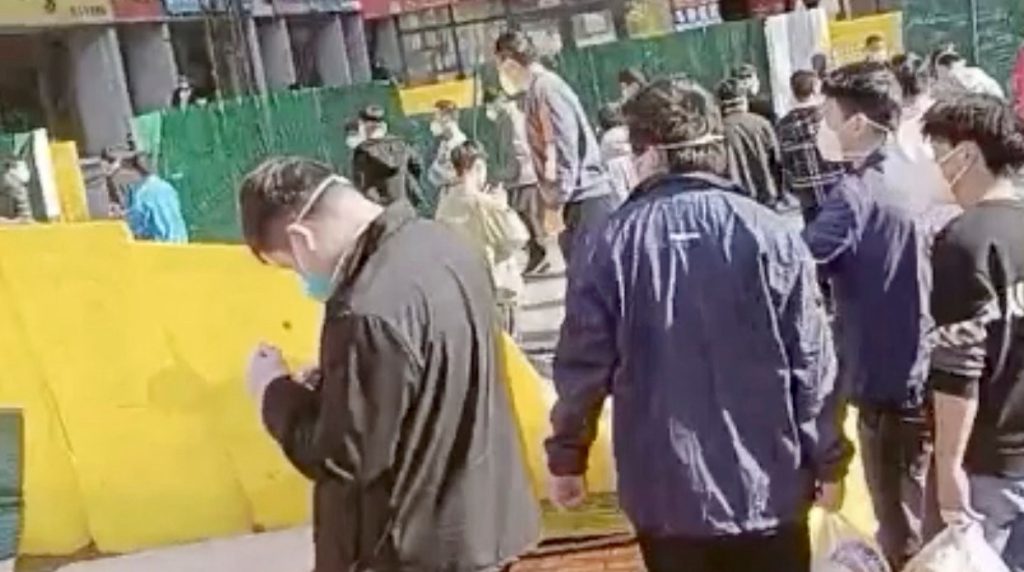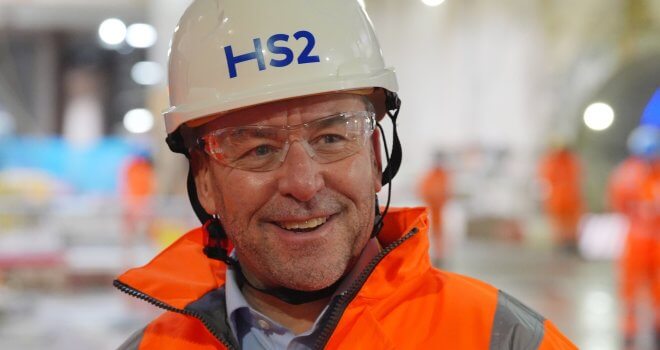Huge Foxconn iPhone Plant In China Rocked By Fresh Worker Unrest

Hundreds of workers joined protests at Foxconn’s flagship iPhone plant in China, with some men smashing surveillance cameras and windows, footage uploaded on social media showed.
The rare scenes of open dissent in China mark an escalation of unrest at the massive factory in Zhengzhou city that has come to symbolise a dangerous build-up in frustration with the country’s ultra-severe COVID rules as well as inept handling of the situation by the world’s largest contract manufacturer.
The trigger for the protests, which began early on Wednesday, appeared to be a plan to delay bonus payments, many of the demonstrators said on livestream feeds. The videos could not be immediately verified by Reuters.
“Give us our pay!”, chanted workers surrounded by people in full hazmat suits, some carrying batons, according to footage from one video. Other footage showed tear gas being deployed and workers taking down quarantine barriers. Some workers had complained they were forced to share dormitories with colleagues who had tested positive for COVID-19.
Foxconn, formally called Hon Hai Precision Industry Co Ltd, said in a statement it had fulfilled its payment contracts and that reports of infected staff living on campus with new recruits were “untrue.”
“Regarding any violence, the company will continue to communicate with employees and the government to prevent similar incidents from happening again,” the company added.
A source familiar with the situation in Zhengzhou said production at the plant was unaffected by the worker unrest and output remained “normal”.
Reuters earlier reported that iPhone output at factory could slump by as much as 30% in November, and that Foxconn aimed to resume full production there by the second half of the month. Apple Inc had warned it expects lower shipments of premium iPhone 14 models than previously anticipated.
While the latest unrest has added “uncertainties” to the target, the source said the company was still working hard to reach it, adding that “only a portion” of the new recruits took part in the unrest.
A second source familiar with the matter, however, said Foxconn was unlikely to hit the target, pointing to disruptions caused by the unrest, impacting particularly new recruits who were hired to bridge the gap in the workforce.
“Originally, we were trying to see if the new recruits could go online by the end of November. But with the unrest, it’s certain that we can’t resume normal production by the month-end.”
Foxconn accounts for 70% of iPhone shipments globally. It makes most of the phones at the Zhengzhou plant, though it has other smaller production sites in India and southern China.
Shares of Foxconn have slipped 2% since the unrest emerged in late October.
The disruptions may shift some iPhone sales into the March quarter from the key holiday quarter, D.A. Davidson analyst Thomas Forte said.
Wedbush Securities analyst Daniel Ives said he expected the shutdowns to cost Apple about $1 billion a week in lost iPhone sales. In the holiday quarter last year, Apple reported iPhone sales worth nearly $6 billion per week.
RECRUITMENT DRIVE
Discontent over strict quarantine rules, the company’s inability to stamp out outbreaks and poor conditions including shortages of food had caused workers to flee the factory campus since the Apple Inc supplier imposed a so-called closed loop system at the world’s biggest iPhone plant in late October.
Under closed-loop operations, staff live and work on site, isolated from the wider world.
Former workers estimate that thousands have fled the factory campus. Before the unrest, the Zhengzhou plant employed some 200,000 people. To retain staff and lure more workers Foxconn has had to offer bonuses and higher salaries.
Local authorities also stepped in to help, with some urging retired soldiers and government workers to take on stints, according to local media reports.
The first source said that the eagerness of local authorities to recruit workers may have played a role in causing “miscommunication” with the new hires on issues including allowance and accommodation.
The Zhengzhou government did not immediately respond to a faxed request for comment.
WORKER WOES
In the videos, workers vented about how they were never sure if they would get meals while in quarantine or over inadequate curbs to contain an outbreak.
“Foxconn never treats humans as humans,” said one person.
Apple did not respond to requests for comment.
“It’s now evident that closed-loop production in Foxconn only helps in preventing COVID from spreading to the city, but does nothing (if not make it even worse) for the workers in the factory,” Aiden Chau of China Labour Bulletin, a Hong Kong-based advocacy group, said in an email.
As of Wednesday afternoon, most of the footage on Kuaishou, a social media platform where Reuters reviewed many of the videos, had been taken down. Kuaishou did not respond to a request for comment.
(Reporting by Brenda Goh and Beijing Newsroom; Additional reporting by David Kirton in Shenzhen, Yimou Lee in Taipei, Yew Lun Tian, Eva Mathews and Tiyashi Datta; Writing by Anne Marie Roantree; Editing by Edwina Gibbs, Louise Heavens, Bernadette Baum and Sandra Maler)




